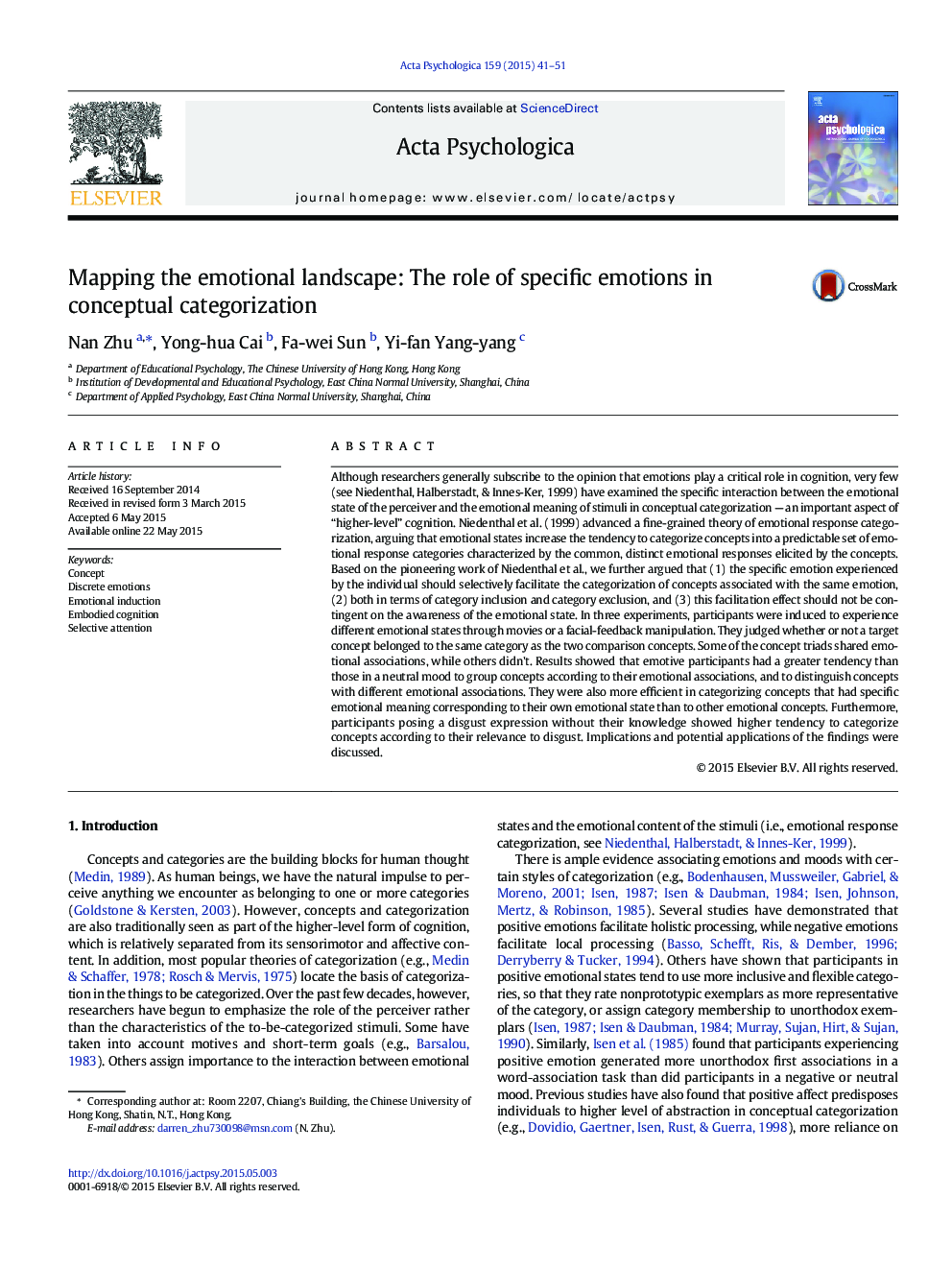| Article ID | Journal | Published Year | Pages | File Type |
|---|---|---|---|---|
| 919713 | Acta Psychologica | 2015 | 11 Pages |
•Mood interacts with the processing of emotional content in conceptual categorization.•Emotional state facilitates categorization according to specific emotions.•Specific emotional state increases sensitivity to the corresponding emotion.•Emotional response categorization can be primed without awareness of emotional state.
Although researchers generally subscribe to the opinion that emotions play a critical role in cognition, very few (see Niedenthal, Halberstadt, & Innes-Ker, 1999) have examined the specific interaction between the emotional state of the perceiver and the emotional meaning of stimuli in conceptual categorization — an important aspect of “higher-level” cognition. Niedenthal et al. (1999) advanced a fine-grained theory of emotional response categorization, arguing that emotional states increase the tendency to categorize concepts into a predictable set of emotional response categories characterized by the common, distinct emotional responses elicited by the concepts. Based on the pioneering work of Niedenthal et al., we further argued that (1) the specific emotion experienced by the individual should selectively facilitate the categorization of concepts associated with the same emotion, (2) both in terms of category inclusion and category exclusion, and (3) this facilitation effect should not be contingent on the awareness of the emotional state. In three experiments, participants were induced to experience different emotional states through movies or a facial-feedback manipulation. They judged whether or not a target concept belonged to the same category as the two comparison concepts. Some of the concept triads shared emotional associations, while others didn't. Results showed that emotive participants had a greater tendency than those in a neutral mood to group concepts according to their emotional associations, and to distinguish concepts with different emotional associations. They were also more efficient in categorizing concepts that had specific emotional meaning corresponding to their own emotional state than to other emotional concepts. Furthermore, participants posing a disgust expression without their knowledge showed higher tendency to categorize concepts according to their relevance to disgust. Implications and potential applications of the findings were discussed.
